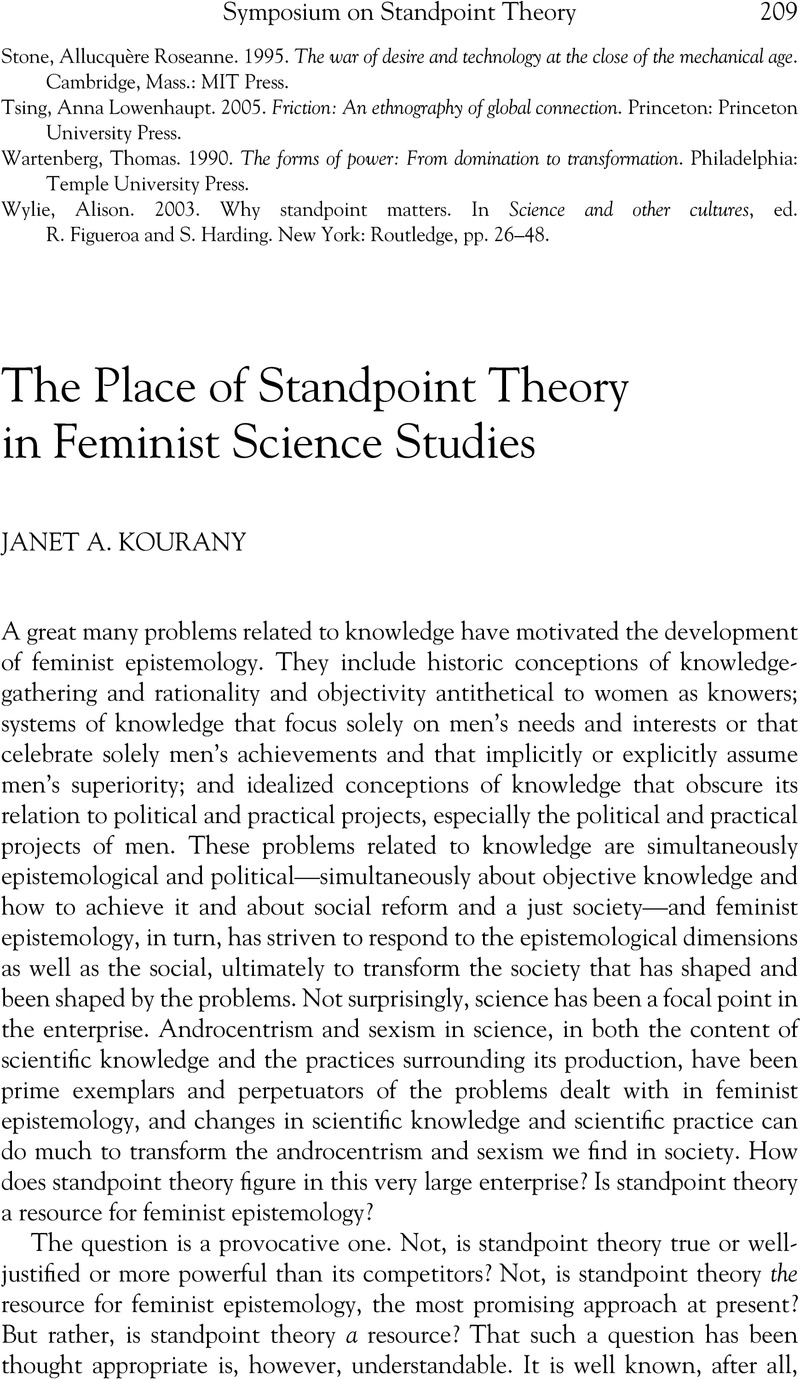Crossref Citations
This article has been cited by the following publications. This list is generated based on data provided by Crossref.
Amoretti, Maria Cristina
and
Vassallo, Nicla
2013.
EPSA11 Perspectives and Foundational Problems in Philosophy of Science.
p.
467.
Im, Eun-Ok
2013.
Practical Guidelines for Feminist Research in Nursing.
Advances in Nursing Science,
Vol. 36,
Issue. 2,
p.
133.
Cook, Kimberly J.
2016.
Has Criminology Awakened From Its “Androcentric Slumber”?.
Feminist Criminology,
Vol. 11,
Issue. 4,
p.
334.
Mukhetdinov, D. V.
2019.
Feminist Hermeneutics in Islam: its History and Major Ideas.
Minbar. Islamic Studies,
Vol. 12,
Issue. 2,
p.
511.
Sikka, Tina
2019.
Climate Technology, Gender, and Justice.
p.
1.
Michael, V. Michelle
2022.
Caught In-Between: Diversifying Tamil Women’s Voices From the Sri Lankan Civil War.
Cultural Studies ↔ Critical Methodologies,
Vol. 22,
Issue. 2,
p.
195.
Roman, Maya
2023.
Exploring the Contributions of Women in the History of Philosophy, Science, and Literature, Throughout Time.
Vol. 20,
Issue. ,
p.
163.
Majic, Samantha
and
Murib, Zein
2024.
The Biggest Decision of Your Life(Time)? Examining the Politics of Married at First Sight.
Social Sciences,
Vol. 13,
Issue. 11,
p.
618.



